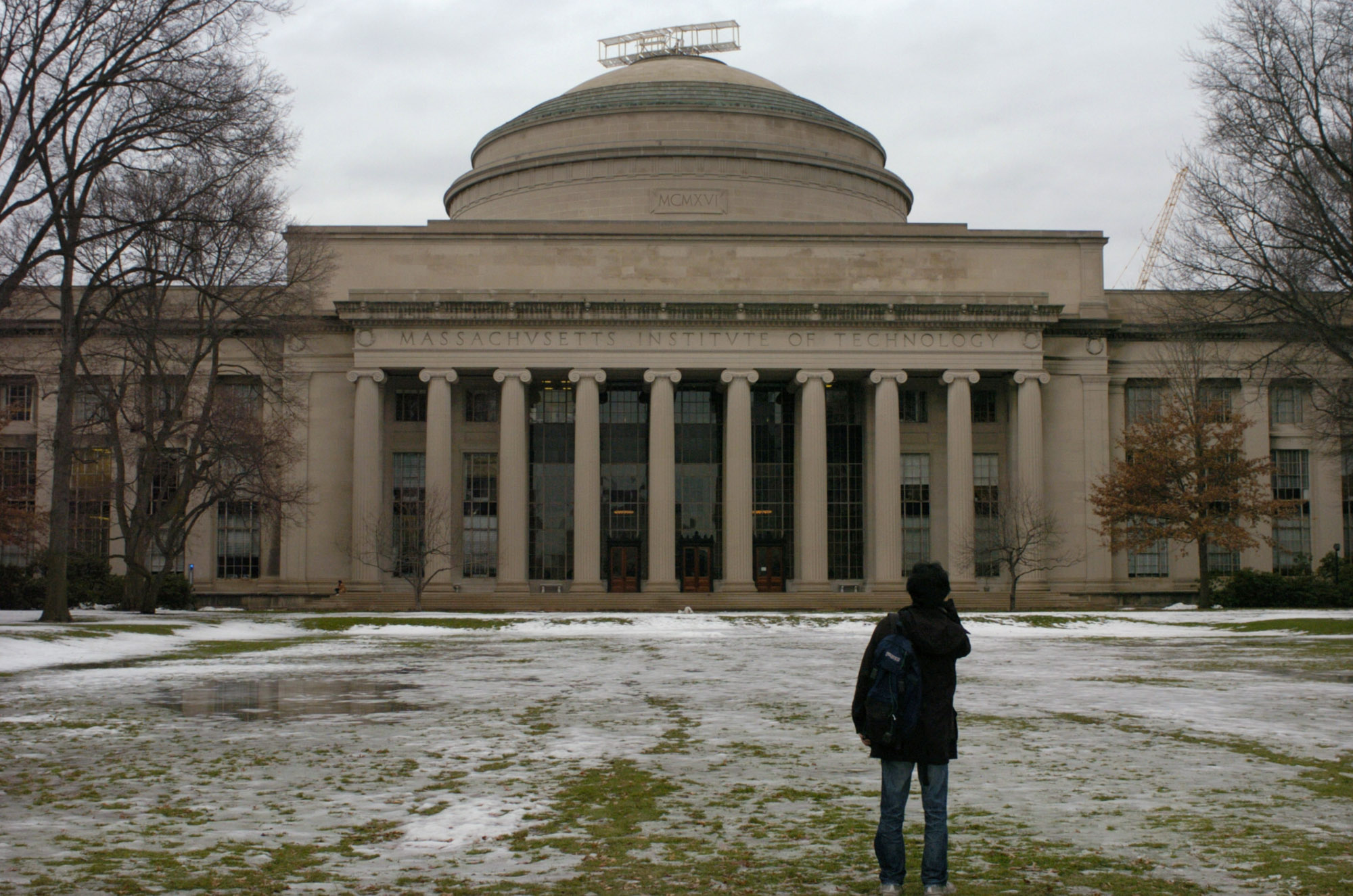
A Massachusetts Institute of Technology student stops to take pictures at the Cambridge, Mass., campus. (AP Photo/Stanley Hu)
Update: Wednesday, November 29, 2017: Graduate students across the country are planning to walkout of class, protesting the tax hikes they face under the Republican plan.
The House Republican tax bill is up for a vote this week and it's got the attention of several groups who are opposed to the legislation. One group that may be particularly impacted: graduate students.
Right now, about 145,000 grad students across the country get tuition waivers for teaching and doing research. It's not money they can actually see and use, but it covers their housing and school. Under the House Republican tax plan released this month, those college tuition waivers would become taxable income.
Some graduate students at public universities like the University of California Berkeley estimate that under the House plan they could see their tax bills triple.
For students at private institutions like the Massachusetts Institute of Technology, however, the burden may be even heavier.
Peter Su, a third-year Ph.D. engineering student at MIT and member of the university's Graduate Student Council, earns a small income as a research assistant. MIT then gives him a stipend of about $35,000 a year for tuition, which is money Su never sees.
If that stipend becomes taxable, Su estimates his tax bill would skyrocket as much as $10,000 a year.
"It would make graduate school more a place where the rich can actually do it and everyone else is just kind of left out because it's not financially feasible," Su said.
Schools like MIT often waive the cost of tuition, hoping to recruit highly-skilled students who might otherwise go to work in the private sector where they can earn more. Tax experts say treating tuition benefits as taxable income would effectively push these students into higher tax brackets.
"If you add $40,000, $50,000, roughly, to someone's tax base their tax bill is going to go up by a whole lot," said Howard Bunsis, an accounting professor at Eastern Michigan University and a member of the American Association of University Professors.
Bunsis says the GOP tax overhaul would put the cost of graduate degrees out of reach for most Americans — and it could slow the production of future faculty members.
"There's no doubt in my mind that this will decrease the number of people going to graduate school," he said. "At Eastern Michigan, our graduate students are teaching assistants and research assistants. There will be fewer graduate students and there will be less research done."
There may be hope in the Senate Republican tax plan, which leaves graduate tuition waivers alone.
Still, MIT students like Sarah Goodman, president of the Graduate Student Council, who spend about half their stipend on rent, worry they won't be able to afford to finish their education.
"Graduate students are the ones who are being trained to become the future engineers and leaders of scientific development and educators and limiting that to a specific set of people who can afford it, that would be detrimental to the development of the technology that we're working on," Goodman said.
Over the past week, Goodman says dozens of MIT students have made hundreds of phone calls to Republican members of the House and Senate, urging them to oppose the repeal of the tuition tax break.
Students are planning more calls this week as the House tax overhaul heads to the floor for a vote on Thursday.
"Students have really become mobilized on this issue just because this really impacts not only each and every graduate student but anyone who's thinking about going to grad school," Goodman said.
WGBH's Esteban Bustillos contributed to this report.
Earlier: At Harvard, Union Organizing In The Ivory Tower
This story originally aired on November 14, 2017.










